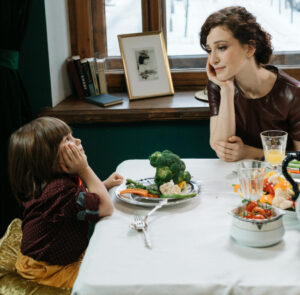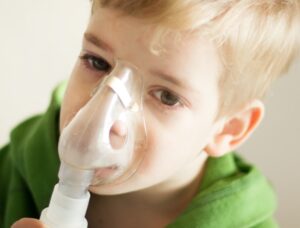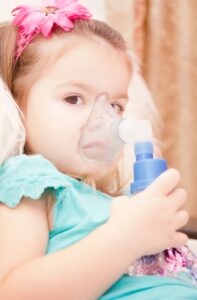Asthma is a common problem for many children, making it hard for them to breathe. When a child has asthma, the small tubes inside their lungs become swollen and tight. This can cause coughing, a whistling sound while breathing (wheezing), a feeling of tightness in the chest, or trouble taking deep breaths. Asthma can happen more often when the air is too cold, when a child is around dust or pollen, during exercise, or when they have a cold. Even though asthma cannot be completely cured, it can be controlled with the right care.
How to Manage Asthma in Children
Every child is different, and the best way to treat asthma depends on their age, how often they have breathing problems, and how serious their symptoms are. With the right treatment, children with asthma can do everything other kids do, including running, playing, and participating in sports.
To keep asthma under control, parents should focus on three main things:
- Knowing and avoiding things that make asthma worse
- Keeping track of symptoms and changes in breathing
- Using medicine correctly when needed
Medicine That Helps With Asthma
There are two main kinds of medicine for asthma:
1. Medicine for Quick Relief
This type of medicine helps when a child is having an asthma attack. It works fast to open the small tubes in the lungs so they can breathe better. These medicines usually come in a small spray device called an inhaler or a machine called a nebulizer. A doctor might give this to a child to use when they feel tightness in the chest, have trouble breathing, or start coughing a lot. This medicine works within minutes and helps them feel better quickly.
2. Medicine for Daily Control
Some children need to take medicine every day to prevent asthma problems before they start. This helps keep their lungs from getting swollen and tight. Some of these medicines come in inhalers, while others come as small pills. A doctor will decide if a child needs daily medicine based on how often they have breathing problems.
Avoiding Things That Make Asthma Worse
Medicine is very helpful, but there are also other things parents can do to help their child avoid asthma attacks. One of the best ways is to keep them away from things that can make their asthma worse. Some of the most common asthma triggers include:
- Dust and pollen – Keeping the house clean, using air filters, and washing bedding often can help.
- Pets – Some children are allergic to pet hair, so limiting contact with pets might be necessary.
- Cold air – Covering the nose and mouth with a scarf during winter can make breathing easier.
- Smoke and strong smells – Avoiding cigarette smoke and strong scents like perfume or cleaning products can help prevent breathing problems.
Making a Plan for Asthma Attacks
Asthma can sometimes get worse unexpectedly, so it is important for parents to have a plan. A written asthma action plan helps caregivers and teachers know what to do when a child has trouble breathing. This plan should include:
- When and how to give medicine
- Signs that asthma is getting worse
- Emergency phone numbers and hospital information
Can Children With Asthma Play Sports?
Yes! Children with asthma can still run, play, and enjoy sports. Activities like swimming and walking are great choices because they do not put too much stress on the lungs. If a child’s asthma is triggered by exercise, they may need to use their quick-relief inhaler before playing to prevent breathing problems.
When to Call a Doctor
Parents should take their child to a doctor if they notice any of these signs:
- The child is coughing or wheezing often, especially at night.
- The medicine is not working as well as before.
- The child has trouble breathing even when they are resting.
Asthma can be scary, but with the right care, children can live normal, active lives. By understanding their triggers, using medicine properly, and working with a doctor, parents can help their child stay healthy and strong.













